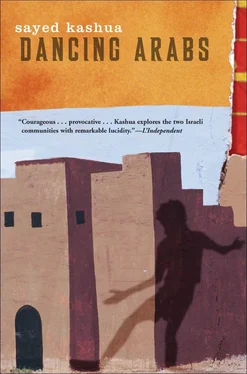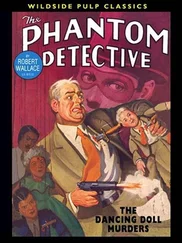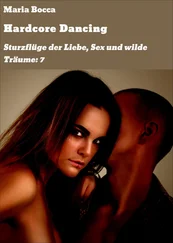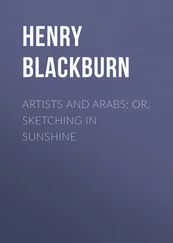But she also told us that as a little girl she would go to the beach all the time. She said all of Tira went; the lands of the village stretched as far as the sea. She didn’t go in deep, just enough to wet her feet. People used to come to the beach with camels loaded down with watermelons. Delicious big watermelons, better than anything you can get nowadays. Every few meters there was someone with a stack of watermelons. Strangers who spoke a language that only the big men could understand would arrive to buy the watermelons. They had lots of workers, who carried the melons for them and loaded them onto their ships.
Grandma used to ride there on the back of a donkey, with her uncles and their children. They’d use the money from the watermelons to buy clothes in Qalqiliya. Everyone got the same thing — same quantity, same colors — to make sure nobody could say, “You got more.” Everything was different back then. Nobody tried to cheat you, and people weren’t scary. The only scary things were the jackals and the wolves.
On holidays, they’d go to the Sidna-Ali Mosque. The men would slaughter sheep for an offering, and the women would light a fire and roast them. Grandma says that only the city women, who spoke differently and dressed like sluts, would go into the sea. They weren’t embarrassed, they were like my mother, who thinks she’s young and walks around with her hair uncovered. The city women didn’t cook, and the farm women would feed them and enjoy poking fun at them. Crazy ladies.
When my grandfather was killed, Grandma left home. Her stepchildren, who were older than she was, wanted the house, and she gave it up in return for some land. There was plenty of land back then, and they had no problem giving her two dunams of wheat fields in exchange. My grandmother says, “They threw me out, with my small children. Four girls and a baby boy still in swaddling cloth. Now they want the land. Let them go on dreaming.”
Nowadays everyone fights over an extra ten centimeters of land. Grandma’s stepchildren’s children claim that the distribution wasn’t fair, and they want her to give them half a dunam. But Grandma won’t budge. She gets up, bares her fingernails, and fights for her land. What the Jews took from her was bad enough. She takes the papers in their plastic wrapping out of the blue suitcase and mutters, “This is my deed for the land, and this is the one for the lands in the field. It’s all written here, with maps and lawyers’ signatures and everything. They thought I was stupid, that I’d simply take them at their word. But I got everyone to sign back then.”
Grandma goes to city hall and asks them to make ten photocopies of her documents. She collects all the arguments that prove her right to the land and lashes out at her step-grandchildren, reminding them of everything she had to go through when she was made to live in a tent. She shouts at them that nobody gave her the land out of sheer kindness or love. She throws the papers at them, with all the maps and the signatures and the red ribbons of the Land Registry Bureau. “Get an engineer. We’ll split the costs, and if I owe you anything, then tfadallu, be my guests.”
They always back off in the end, with Grandma emerging the victor, but bleeding. They’ve insulted her; they’ve brought up things she’s been trying to forget. The stepdaughter of the badal has left a scratch on her heart. My grandmother never cries, but her voice sometimes becomes choked with sorrow. “Did I let her brothers go hungry? May God never forgive her, in this world or the next.”
Grandma yells at my father that he doesn’t know how to stand up to those nothings. He’s scared of a few self-important thugs. Can’t protect his land, doesn’t appreciate its value.
Sometimes my grandmother dreams about a place she calls el-Bassah, where her parents used to spend the sunny season. They didn’t spray the watermelons there, just used fertilizer from the hens. She dreams of the camels they used to ride for three grush a person. After the war she went there once with a sack of straw on her head. The children were hungry, and she was going to see if there was anything left in the fields. They wouldn’t let her go near. “ Rukh min hon, ” they told her. “ There’s no land. Go away.” She tried to get past the soldier, but he pointed a gun at her chest.
When the Soviet Union was a superpower, my father used to say the lands would be returned someday. He taught us about Russian planes and tanks and antiaircraft missiles, Russian boats and submarines. “The Russians aren’t like those spoiled Americans you see undressing in the movies. They’re disciplined. The soldiers are well trained. They would never abandon their positions.” He told us about one Russian who banged his shoe on the table at the United Nations and threatened the United States and Israel.
Father forced us to follow the Olympic Games and to root for the Russians. The Olympics are like a war, my father used to say. Anyone who wins in sports will win in airplanes too. The Russians always had the lead, and we had no doubt who would win. In those days, people had hope. In our village there were two girls called Valentina. In Kalansawa, someone named his oldest son Castro. To this day, they call him Abu-Castro.
Meanwhile, Father’s dream had turned sour. He continued to root for the soccer teams in red but stopped following the Olympics. Hope gave way to despair, and the volumes of Marx and Lenin were relegated to the top shelf, to be replaced by the Yellow Pages in Hebrew and Arabic.
My father says, “ Al-ard zai al-ard ”—“The land is like honor.” Anyone who sells his land sells his honor. But they pay $5,000 for every dunam of land that once belonged to the absentees. If Grandma has thirty dunams, that works out to $150,000. It’s a hefty sum, but land mustn’t be sold. Especially considering that $5,000 for a dunam is actually nothing. There’s a whole industry of attorneys handling the lands. Everyone in the village is selling. “I don’t understand how they can sell. Not that it will ever revert to us. Or maybe it will, who knows. But it’s a matter of principle.”
My father understands about politics, watches the news, and reads the papers religiously. He leaves the radio on next to him even when he’s asleep. He looks a wreck. He’s come to realize it’s never going to work out, and the way things are going, they’re liable to take away even the land we still have left. He turns to us, his four sons, and says, “You’re bound to leave. None of you is going to stay to defend the land. Refugees. Is that what you want to be? Look at what happened to the ones who ran away. It would be better to die than to run. But you, what do you know about the value of land?”
PART TWO. The Bump on My Head
The Craziest Kid in the Village
My parents say that before I jumped off the roof and cracked my skull, I was the craziest kid in the village. They were worried about my future and did everything they could to set me straight, but nothing helped. My parents were shattered. I made their lives miserable. Not only theirs, the whole neighborhood’s and all our relatives’ lives too.
My father says everyone hated me; they couldn’t stand the sight of me. Little kids didn’t dare walk down the street in front of our house. He says neighbors filed complaints with the police on account of me. They thought of having me committed or putting me in reform school when I was not even in kindergarten yet.
My parents think back on it sometimes and laugh when they recall how I used to wake up before everyone else, jump out through the window, and head for the school near our house to look for bottles and bongs left behind by the hashashin, the hashish addicts. Then I’d run through the fields looking for cars that the car thieves had burned at night, and I’d come home with the charred license plates.
Читать дальше












